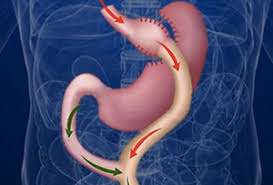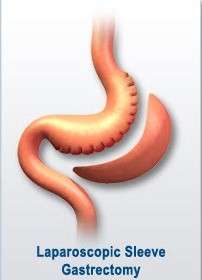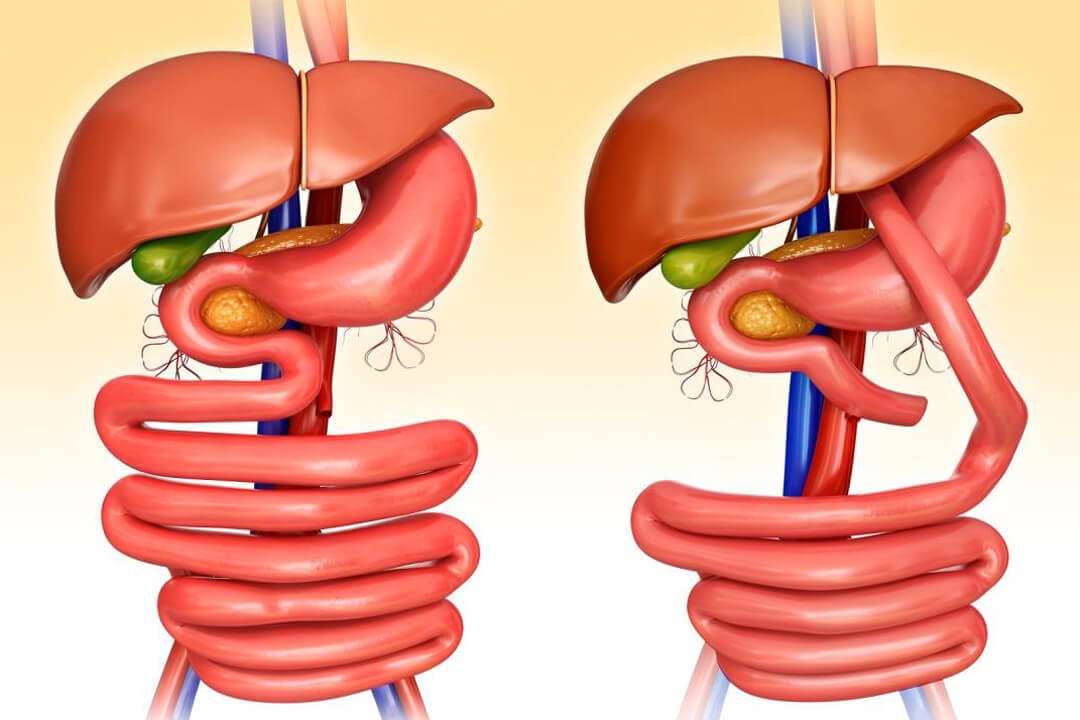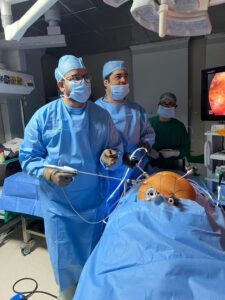Bariatric Surgery in Mumbai – Weight Loss Surgery
All about obesity:
 Obesity is a major growing concern in India and across the world, coupled with an increasing incidence of people suffering from lifestyle disorders.
Obesity is a major growing concern in India and across the world, coupled with an increasing incidence of people suffering from lifestyle disorders.
Bariatric Surgery is one of the widely accepted solutions to obesity across the world. In India, bariatric surgery is performed to resolve health and weight loss issues of obese people who wish to live healthier and meaningful lives.
Dr. Harsh Sheth is one of the best Advanced Laparoscopic & Bariatric Surgeon in Mumbai who performs all types of bariatric surgery. He is a highly qualified and experienced surgeon with ten years of experience in performing bariatric surgery in Mumbai.
Obesity – growing health disorder
Obesity is associated with excess body fat or weight of the person with the capability to have detrimental effects on the physical and mental health. An obese person could be suffering from single or host of lifestyle disorders such as diabetes, cardiac issues, hypertension, sleep apnea, and so on.
But for an obese person, attaining the normal weight is a very difficult and challenging tasks. It requires tremendous amount of dedication, patience and self-control. Weight loss and medication and physical regimen are among the sure-shot remedies for obese people to recover from lifestyle disorders and resume healthy living.
Transform your life with bariatric surgery. Book your appointment
Weight loss surgery:
Introduction :
An obese patient with comorbidities and a high body mass index is ideal for bariatric surgery for weight loss. Agreeably, the obese patient may have attempted numerous weight loss treatments, diets, fitness regimens, and medications but could not lose weight and achieve ideal body weight.
Bariatric Surgery becomes the stepping stone for such patients who wish to regain their health and live healthier and longer. Yes, bariatric surgery is a weight loss surgery, albeit a game-changer for them. The patient has to make a lifelong commitment to bringing about many changes in the way they live more actively and healthily.
Before giving the go-ahead for the weight loss surgery, the bariatric surgeon and his team will assess the patient and evaluate the determination and capacity to undergo lifestyle changes for the successful outcome of the bariatric surgery. It will be essential for the patient to change their eating habits, physical activity, behaviour patterns, including stress management.
The main focus is to perform a successful weight loss surgery that leads to the desired weight loss and maintain a healthy weight. The bariatric surgeon and his team, and a dietician, will guide the patient on nutrition and diet for weight loss management.
Remember – Bariatric Surgery changes the size of the stomach. Weight loss and healthy life is determined by how the patient responds to the weight loss surgery and its success.
Before Weight loss or bariatric surgery :
A preoperative diet is a must for a successful bariatric surgery. Dr. Harsh Sheth will recommend a low-calorie diet two weeks before the surgery to shrink the liver’s size and spleen to a great extent. A small sized liver and spleen will ensure a safe and successful weight loss surgery. Moreover, the patient will have to continue to follow a low-calorie diet after the bariatric surgery.
The preoperative diet or suggestions could include –
- Protein Shakes
- Sugar-Free Beverages or Beverages with sugar substitutes
- Clear Soups
- Vegetable Juices
- 1 – 2 servings of vegetables or lean meat on the approval of the bariatric surgeon or dietician
Important instructions :
- No solid foods to be consumed
- Beverages and meals should be consumed separately
- Liquids or beverages can be consumed after a 30-minute gap
- The liquids should be sipped and not gulped down
Medications before Surgery :
The bariatric surgeon and his team will recommend certain medicines that have to be stopped or taken in low doses one week before the surgery. These include steroids, anti-coagulation medications, replacement hormones, birth control, and certain NSAIDs.
Warning – Smoking has to be stopped before the surgery as it increases the risk of blood clots and complications during the surgery and later on.
After Weight loss or bariatric surgery :
It is necessary to follow the recommended post-operative diet for successful bariatric surgery. The patient has to work towards healing the staple line of the stomach. The diet recommended is light and easy to digest. It does not cause stress on the stomach to avoid a leak and further complications.
The post-bariatric surgery diet comprises of four stages viz.
- Stage 1 : 1 – 7 days after the surgery
Food Intake – Clear Liquids – water, fat-free milk, fat-free broth
- Stage 2 : Up to 14 days after stage 1
Food Intake – Pureed Foods – protein shakes, egg whites, non-fat cheese, or cottage cheese, which can be pureed with milk, broth or water.
The patient can have calcium citrate and a multivitamin tablet once a day at a gap of two hours between both of them for better absorption.
- Stage 3 : From 2 weeks – 2 months after stage 2
Food Intake – Soft Foods – soft vegetables and lean proteins, a small portion of fat – chicken, fish, egg whites, tofu, non-fat cheese and non-fat cottage cheese.
Vegetables permitted are potatoes, tomatoes, green beans, squash, carrots, bananas, cucumbers, and so on. The food should be eaten in bite-sized quantities and are mashable with a fork, spoon, or knife before eating them.
- Stage 4 : After months and for life –
Food Intake – Solid Foods that contain proteins, vegetables, a minimal amount of grain, and the least amount of refined sugar
Recommended daily calorie intake is 800 to 1,200 and up to 1,500 calories for at least one and half years after surgery. The patient should continue to take the multivitamins and other supplements as suggested by the bariatric surgeon.
Bariatric surgery is referred to as weight loss surgery for many reasons. While traditional weight-loss diets focus on limiting food intake, bariatric surgery restricts food intake and encourages malabsorption of food. So, after a weight loss surgery, the patient will feel full after eating small quantities of food, or the digestive system will absorb limited calories from the digested food. The patient can reduce weight and maintain it as well for life.
Weight loss surgery (bariatric surgery) is a scary prospect for most and is often shunned by those who need it the most. However, advances in medical technology and increased training in bariatric surgeries have resulted in safer outcomes for patients.
Weight loss surgery is also termed as obesity surgery or bariatric surgery or metabolic surgery. Bariatric surgery is a procedure that involves making slight modifications to your stomach and/or small intestine to limit the amount of food you consume and/or to reduce the absorption of nutrients.
However, not all obese individuals can undergo weight loss surgery. Amongst Asians, only those who have a BMI above 30 with co-morbidities (such as diabetes mellitus, hypertension, increased cholesterol levels etc.) and those with BMI above 35 with or without co-morbidities, are permitted to explore the surgical alternative because they are at a relatively higher risk of serious health conditions. (Table of indications)
Bariatric Surgery – Path forward to weight loss and healthy living
Bariatric surgery offers a viable medical solution to obese people who wish to lose weight and adopt a healthier lifestyle. Bariatric surgery is considered if the obese person cannot lose weight despite following weight-loss diets and exercises coupled with weight loss medication over time.
Dr. Harsh Sheth is a leading and well trained surgeon who has performed bariatric surgery in Mumbai, on patients with high rate of success. He is available at multiple hospitals in Mumbai for consultation and treatment.
Laparoscopic bariatric surgery
Bariatric surgery is a collective term for different types of weight-loss surgeries. Dr. Harsh Sheth is an expert in performing all the various kinds of bariatric surgery in Mumbai. The different types of bariatric surgery are:
Against the conventional open surgeries, laparoscopic surgeries are minimal invasive procedures. Laparoscopic surgeries are performed using a laparoscope, which is a long, thin tube fitted with a camera at its tip.
Bariatric Surgery – Ultimate Goal
Bariatric surgery focuses on limiting calorie absorption and initiate weight loss. The bariatric surgeon will re-size the stomach or bypass the varying lengths of the small intestine to limit food consumption and reduce the absorption of excess calories from the intestines.
Dr. Harsh Sheth, bariatric surgeon in Mumbai is available treat obese patients who wish to regain their optimum health through bariatric surgery.
Who is the right candidate for bariatric surgery?
Candidates are screened in-depth on these factors for bariatric surgery –
- BMI > 40 kg/m2BMI > 35 kg/m2 with two or more obesity-related comorbidities
- BMI 30-35 kg/m2 with uncontrolled diabetes mellitus (type II) despite best medical management?
- Failure in weight loss initiatives despite seeking the services of a professional nutritionist
- Individuals in the age group of 16 –70 years
- Committed to staying healthy within normal weight
- Strong enough to undergo a surgical procedure
If the candidate has responds positively to any of the abovementioned points, he or she can consider undergoing a weight loss surgery for sustaining normal weight and have a healthier and a fitter lifestyle.
Ready to achieve lasting weight loss? Our bariatric surgery team can help. Book your appointment
Types of Bariatric Surgery
Dr. Harsh Sheth an expert surgeon performs all types of bariatric surgery in Mumbai with a high success rate.
A) Laparoscopic sleeve gastrectomy –

Key Benefits – Reduces hunger and encourages rapid weight loss.
Suitable for – Young patients committed to weight loss through exercise and diets . Also Super obese patients with BMI>50 kg/m2
B) Laparoscopic Gastric Bypass –

Key Benefits – Reduction in BMI and appetite. Reversible procedure.
Suitable for – Obese patients with Diabetes Mellitus (type II)
Patients with severe reflux symptoms, especially after a sleeve gastrectomy.
C) Laparoscopic Mini Gastric Bypass –
In this surgery, a loop of the small intestine is connected to a larger pouch made by stapling the stomach. This loop bypasses 150-200 cm of the small intestine. It is a variant of gastric bypass surgery.
Key Benefits – Rapid weight loss
Suitable for– Obese patients aged 50 years & above with no reflux-related symptoms.
Patients on anti-depressants and anti-psychotic medications.
D) Laparoscopic Duodenojejunal Bypass –
In this procedure, the surgeon performs a sleeve gastrectomy. Nearly two-thirds of the stomach is removed by bypassing the first 100 – 150 cms of the small intestine. The reduced stomach is formed into a loop, and connected to the duodenum, the first part of the small intestine.
Key Benefits – Rapid weight loss
Suitable for – Patients with low BMI but long-standing uncontrolled Diabetes Mellitus.
Revision of earlier performed sleeve gastrectomy in case of weight regain or poor weight loss.
E) Laparoscopic Single Anastomosis Duodeno-Ileal Bypass (SADI) –
The surgeon bypasses the entire length of the small intestine and leaves just 200–250 cms for nutrient absorption.
Key Benefits – Rapid Weight loss
Suitable for – Patients who have to undergo a revised bariatric procedure as they have either gained weight or lost negligible weight.
Dr Harsh Sheth is available for patients wishing to undergo bariatric surgery in Mumbai. He takes active interest in counseling patients over their obesity issues. He also, educates them on bariatric surgery in terms of their health condition and how to maintain a healthy lifestyle post the surgery.
Benefits of bariatric surgery :

- You will experience significant and sustained weight loss.
- The surgery offers long-term remission of type 2 Diabetes which is otherwise difficult to control.
- It will improve your cardiovascular health by decreasing the risk of stroke, heart diseases, cholesterol, and blood pressure.
- It helps relieve stress and depression as you feel more confident and positive about yourself post weight loss.
- Significant weight loss will reduce the pressure on your joints and relieve you from joint pains. This, in turn, will help you enjoy more mobility and flexibility.
Take the first step towards a healthier you with our expert bariatric surgery options. Schedule a consultation
About Doctor
Dr. Harsh Sheth is one of the leading bariatric surgeon in Mumbai, who has been practicing specialized surgery for a decade. Currently, he consults at some of the prestigious hospitals in the city, which are known to handle high volume bariatric surgeries.
He can determine which weight loss surgery treatment is best for each patient based on their specific anatomical demands and weight loss objectives, thanks to his extensive experience in all types of bariatric surgery.
Dr. Harsh Sheth has a lot of expertise with revision bariatric surgery, which is usually more complicated than the initial procedure because of the extent of scarring and tissue modification that has already taken place.
Deciding to have bariatric surgery can be a life-changing one. As a result, it’s critical that bariatric surgery be performed by a surgeon with a high patient satisfaction rate, such as Dr. Harsh Sheth.
Bariatric surgery patients of Dr. Harsh Sheth are highly pleased with their outcomes and the individualized, one-on-one attention they receive. They refer their friends and family to one of the best bariatric surgeon in Mumbai for weight loss treatment.
Testimonials
Frequently Asked Questions
Who are the candidates for weight loss?
The BMI of the candidate decides how crucial it is for the person to undergo weight loss through surgery. If the person fits into any of the following BMI categories, then it is advisable to undergo weight loss surgery – BMI 35-40 (32.5-37.5 for Asians) kg/m2 with two or more obesity-related co-morbidities. – BMI more than 40 (37.5 for Asians) kg/m2 with or without obesity related co-morbidities. – BMI 27.5-32.5 (for Asians) kg/m2 with severely uncontrolled diabetes mellitus (type II) despite best medical management.
Will bariatric weight loss surgery give a new lease of life?
Yes, there is evidence that bariatric surgery resolves obesity and prevents its recurrence, leading to improvement in the person’s quality of life. Ideal body weight, healthy eating, and active physical fitness levels keep obesity and related co-morbidities and obesity- related cancers at bay.
Will bariatric weight loss surgery improve the quality of life?
Yes, it will improve the overall quality of life. It makes the person live healthier and longer. It also improves the mobility, flexibility, and sexual function of the person. After bariatric surgery, the person will feel more confident and happy. This leads to better social interactions and reduction in stress and depression levels too.
When can the person resume work after bariatric surgery?
After 2 – 3 weeks of the surgery, the person can resume normal work. The person will be hospitalized for at least three days after the surgery, after which it is advisable to take rest for yet another week. The person can begin with normal routine activities by the third week. The earlier feelings of low energy levels and weakness will slowly fade out, and the person will emerge more active and fitter than before.
Does insurance cover bariatric surgery?
If you are looking for bariatric surgery in Mumbai then you can have the facility of insurance cover. The IRDAI has issued a notification that insurance policies can cover bariatric surgery (after a waiting period) if the individual is obese with a BMI of 35-40 kg/m2 with two or more obesity-related co-morbidities or a BMI greater than 40 kg/m2 with or without obesity-related co-morbidities. The changes will be effective from 1st October 2020. Nevertheless, it is advisable to confirm the same with your insurance advisor.
What is the overall advantage of bariatric surgery?
Apart from the desired weight loss, bariatric surgery has its share of multiple benefits viz –
- Long-term remission of diabetes (type 2 diabetes)
- Improved fertility.
- Better sleep .
- Relief from joint pain.
- Improved mental health – less depression and stress.
- Improved cardiovascular health.
Is it possible and safe to get pregnant after bariatric surgery?
Yes, it is possible and safe to get pregnant after bariatric surgery. Ideally, the mother should wait for at least 1.5 – 2 years before getting pregnant. It is advisable to regain ideal weight and good health before attempting to conceive for the best results.
Is it possible to exercise soon after the bariatric surgery?
Yes, surgeons recommend walking on the day of the surgery itself. If possible, the person can go for walks and light jogs as well. However, running and weight lifting have to be avoided for at least six months post the surgery in order to prevent the formation of a hernia in the operated region.
How safe is bariatric surgery?
If performed by a highly qualified and well-trained surgeon, bariatric surgery is very safe. Like, Dr Harsh Sheth, being highly experienced surgeon, relates to a low incidence of morbidity and negligible mortality.
What are the side effects or complications of post-bariatric surgery?
Yes, there are a set of postoperative risks and complications that can be managed if they are aware of them. They are chronic nausea, acid reflux, infection, low blood sugar, ulcers, dumping syndrome, dilation of the oesophagus, hernia, to name some of them. However, it is best to seek the bariatric surgeon’s proper advice and consultation for the same.
Why is bariatric surgery suggested?
Bariatric surgery is suggested to obese people who suffer from hypertension, type 2 diabetes, cardiac issues apart from being overweight. Bariatric surgery helps them to lose weight and maintain ideal weight too.
What is laparoscopic bariatric surgery?
Laparoscopic weight-loss surgery is surgery performed through a video camera inserted in the abdomen of the patient. The surgeon makes some tiny incisions in the abdomen to insert the camera and work on the stomach or the intestines as the case may be. Small surgical incisions mean less post-operative complications, speedy recovery, and a short stay at the hospital.
How long will a weight loss surgery last?
In general, this type of surgery lasts for 60 to 90 minutes if done using a laparoscope. The patient will stay for a maximum of two days in the hospital and perform routine tasks after 7 to 10 days post-surgery. However, lifting weights and performing a rigorous activity is a complete no for at least 6 to 8 weeks.
How much weight can an obese patient expect to lose?
The journey of weight loss goes on for almost two years. The patient will experience rapid weight loss during the first three months. The patient will experience slightly slow-paced weight loss in the following periods, say up to 50 – 65% depending upon the type of bariatric surgery performed. However, it is very important to strictly follow the diet tips to maintain weight loss, especially consuming a low-fat and a low-sugar diet and adequate physical exercise.
What are the factors affecting bariatric surgery cost in Mumbai?
The cost of bariatric surgery in Mumbai varies due to several factors: the type of procedure, hospital and surgeon chosen, pre- and post-operative care, and the location within the city. Additionally, insurance coverage, length of hospital stay, any medical complications, technology used, and medications required all contribute to the overall expense. Hospitals with advanced infrastructure and experienced surgeons tend to charge more, while insurance can significantly reduce out-of-pocket costs.





















